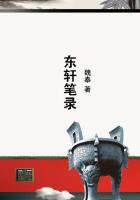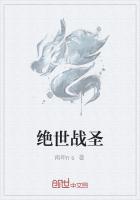My uncle, who was usher of the Emperor's cabinet, related to me an anecdote which is probably entirely unknown; since everything, as we shall see, occurred under cover of the most profound mystery. "One evening," he said to me, "Marshal Duroc gave me in person orders to extinguish the lights in the saloon in front of his Majesty's cabinet, and to leave only a few candles lighted. I was surprised at such a novel order, especially as the grand marshal was not accustomed to give them thus directly, but, nevertheless, executed it precisely, and waited at my post. At ten o'clock Marshal Duroc returned, accompanied by a personage whose features it was impossible to distinguish, as he was entirely wrapped in a large cloak, his head covered, and his hat pulled down over his eyes. I withdrew, leaving the two alone, but had hardly left the saloon when the Emperor entered, and Marshal Duroc also retired, leaving the stranger alone with his Majesty. From the tone in which the Emperor spoke it was easy to see that he was greatly irritated. He spoke very loud; and I heard him say, 'Well, Monsieur, you will never change then.
It is gold you want, always gold. You draw on all foreign banks, and have no confidence in that of Paris. You have ruined the bank of Hamburg; you have caused M. Drouet (or Drouaut, for the name was pronounced very quickly) to lose two millions:
"The Emperor," my uncle continued, "conversed in this strain for a long while, though the stranger did not reply, or replied in so low a tone that it was impossible to hear a word; and the scene, which must have been most trying to the mysterious personage, lasted about twenty minutes. At last he was permitted to leave, which he did with the same precautions as on his arrival, and retired from the palace as secretly as he had come."
Nothing of this scene was known in Paris; and, moreover, neither my uncle nor I have ever sought to ascertain the name of the person whom the Emperor overwhelmed with such numerous and severe reproaches.
Whenever circumstances allowed, the Emperor's habits of life were very regular, his time being almost uniformly divided as follows. Every morning, at nine o'clock precisely, the Emperor left the imperial apartments; his exactness in observing hours was carried to an extreme, and I have sometimes seen him wait two or three moments in order that no one might be taken by surprise. At nine o'clock his toilet was made for the whole day. When he had reached the reception-room, the officers on duty were first admitted, and received his Majesty's orders for their time of service.
Immediately after this, what was called the grandes entrees took place.
That is to say, personages of high rank were admitted, who had this right on account of their duties, or by the special favor of the Emperor; and I
can assert that this favor was much envied. It was granted generally to all the officers of the imperial household, even if they were not on duty; and every one remained standing, as did the Emperor also. He made the tour of all the persons present, nearly always addressed a remark or a question to each one; and it was amusing to see afterwards, during the whole day, the proud and haughty bearing of those to whom the Emperor had spoken a little longer than to others. This ceremony usually lasted a half-hour, and as soon as it was finished the Emperor bowed and each retired.
At half-past nine the Emperor's breakfast was served, usually on a small mahogany stand; and this first repast commonly lasted only seven or eight minutes, though sometimes it was prolonged, and even lasted quite a long while. This, however, was only on rare occasions, when the Emperor was in unusually good-humor, and wished to indulge in the pleasure of a conversation with men of great merit, whom he had known a long while, and who happened to be present at his breakfast. There he was no longer the formal Emperor of the levee; he was in a manner the hero of Italy, the conqueror of Egypt, and above all the member of the Institute. Those who came most habitually were Messieurs Monge, Berthollet, Costaz (superintendent of crown buildings), Denon, Corvisart, David, Gerard, Isabey, Talma, and Fontaine (his first architect). How many noble thoughts, how many elevated sentiments, found vent in these conversations which the Emperor was accustomed to open by saying, "Come, Messieurs, I
close the door of my cabinet." This was the signal, and it was truly miraculous to see his Majesty's aptitude in putting his genius in communication with these great intellects with such diversities of talent.
I recall that, during the days preceding the Emperor's coronation, M.
Isabey attended regularly at the Emperor's breakfast, and was present almost every morning; and strange, too, it did not seem an absurd thing to see children's toys used to represent the imposing ceremony which was to exert such a great influence over the destinies of the world. The intelligent painter of his Majesty's cabinet portraits caused to be placed on a large table a number of small figures representing all the personages who were to take part in the ceremony of the coronation; each had his designated place; and no one was omitted, from the Emperor to the Pope, and even to the choristers, each being dressed in the costume he was expected to wear.
These rehearsals took place frequently, and all were eager to consult the model in order to make no mistake as to the place each was to occupy. On those days, as may be imagined, the door of the cabinet was closed, and in consequence the ministers sometimes, waited awhile. Immediately after the breakfast the Emperor admitted his ministers and director generals;
and these audiences, devoted to the special work of each minister and of each director, lasted until six o'clock in the evening, with the exception of those days on which his Majesty occupied himself exclusively with governmental affairs, and presided over the council of state, or the ministerial councils.















